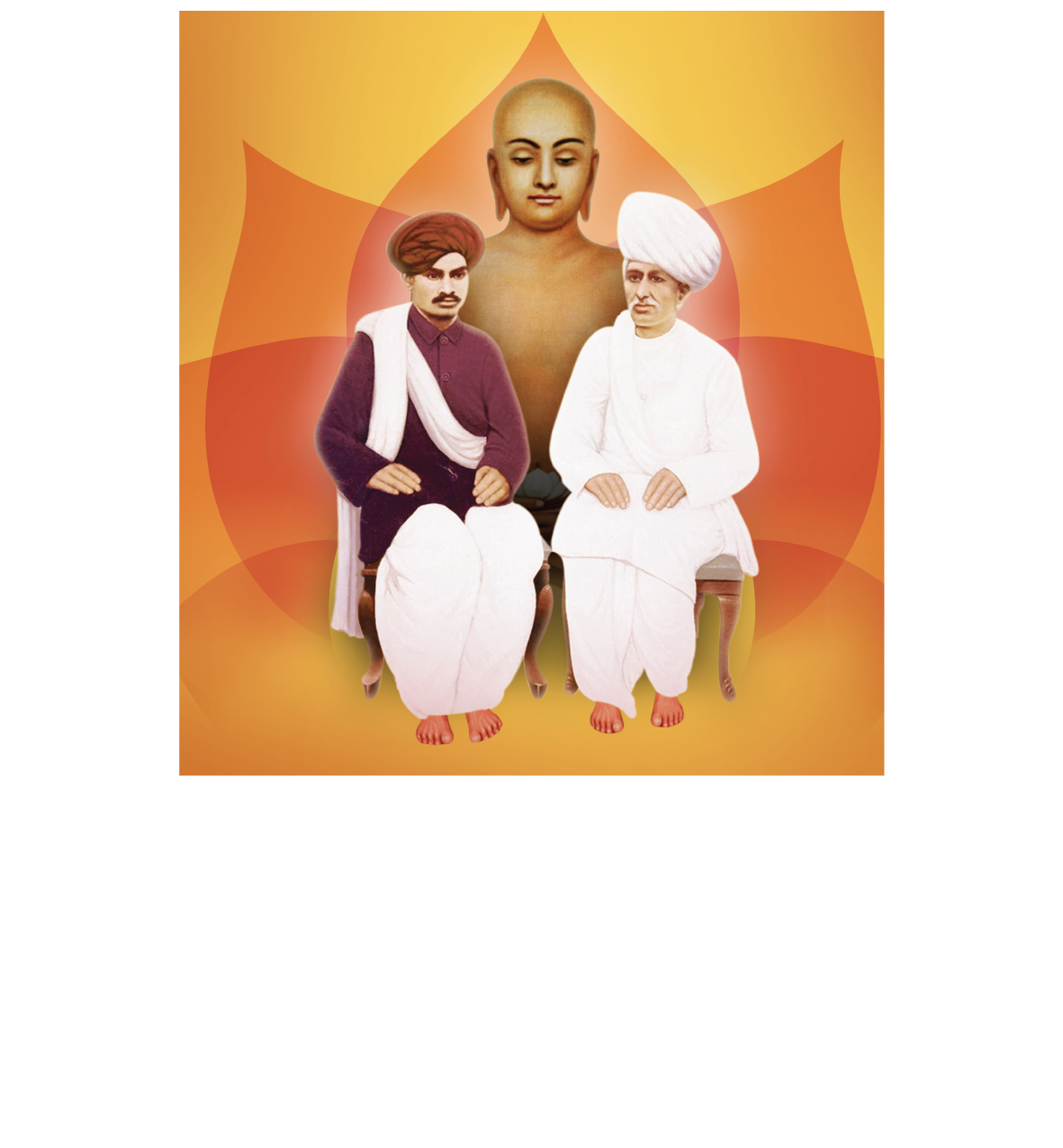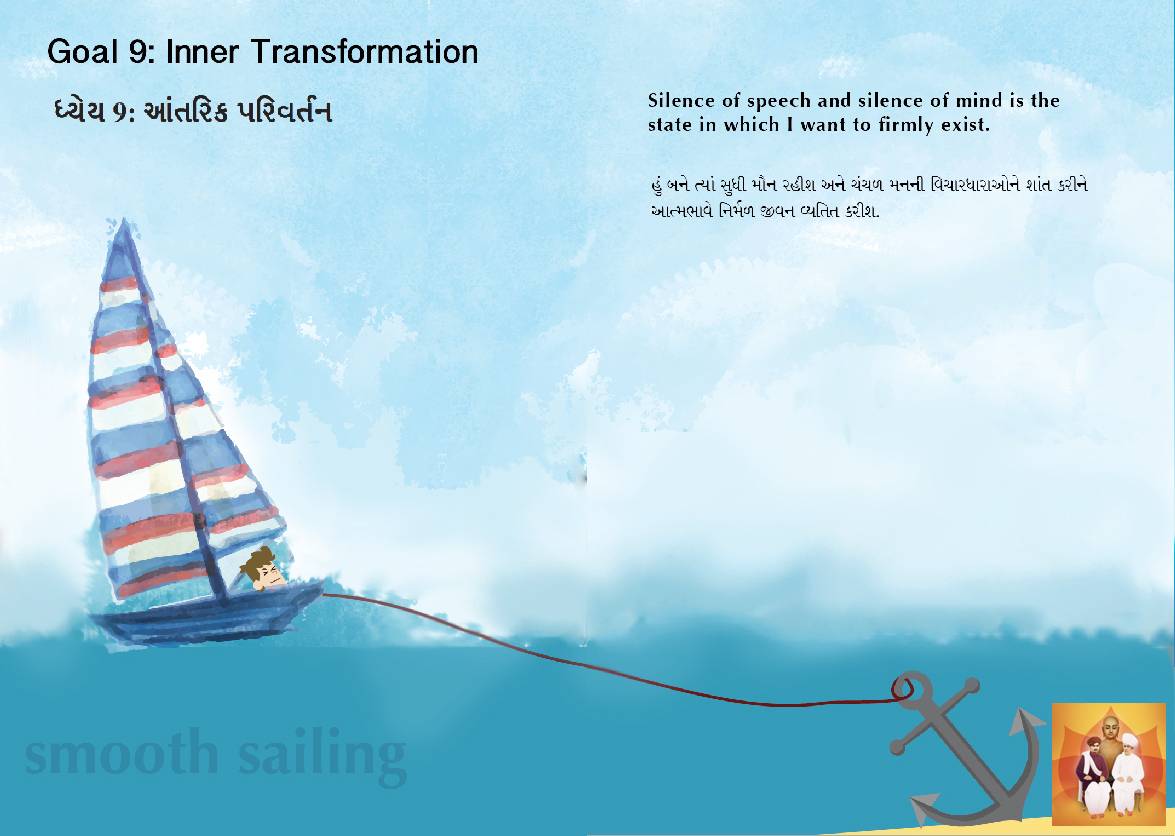IVY Swadhyay - July 2017
Making Paryushan Easy and part of our daily life.
With the holy festival of Paryushan not even a month from now, all the believers in Jainism would have plans to increase their level of spirituality by fasting, meditating and praying.
While fasting is not always easy, there are other options that everybody (regardless of age, intelligence, profession or class) can undertake easily like the four principles of Jainism. Practicing them daily helps them integrate effortlessly into our lives.
Non-Violence (Ahimsa) - Ensuring that we do not harm to any soul in any way. That is, being extremely careful when you walk, talk, move, eat, use water, electricity etc.
Truth (Satya) - Always speak the truth. Pujya Bapuji would often say: ‘In difficult situations keep mum rather than speak a lie’. Either do not engage into things that you cannot tell others about or have the courage to confess when you have committed any wrong deed.
Non-cheating/Stealing (Achaurya) - Never let even the thought of stealing or cheating enter your mind. In case it does, be vigilant enough to not entertain such a thought.
Non-Possession/Non-attachment (Aparigrah) - Often our stress comes from trying to handle more than necessary – same goes for possessions or material things – allocate the quantity of things you need and give away excess possessions to those in need.
At the end of the day, we may have saved some lives and stopped ourselves from hurting others and mustered courage to own our mistakes, confess and ask for forgiveness.
For spiritual enrichment, Brahmnisht Minalben suggested to follow 6 simple things everyday. These 6 tasks have as much potential as meditation to uplift one’s spirits, make one happy and lead a disciplined life filled with gratitude.
• Wake up with a smile, look at life with enthusiasm and bow 3 times before the enlightened souls to say ‘Thank you’.
• Fold your hands in namaskar mudra to the universe and establish connection with everyone who is a part of it – celestial bodies, nature, family & friends. All souls are alike; the only difference is in the bodily form they take.
• Resolve to see things in positive light. Replace the negative thoughts with positive ones.
• Aspire something for the day. It can be anything as simple as spending time with an elderly person, teaching something to someone, helping a friend, politely talking to a person you dislike, to anything personal as beginning to learn a new skill. One must remember that desire is not the same as aspiration. Desire has latent selfishness whereas aspiration is about the joy of learning and giving.
• Never let yourself feel lonely. At any point you feel that you are alone, remind yourself that our Sadguru and our mother are always with you.
• Lastly, before going to bed, pray the Almighty to organize your life, while giving you the strength to take care of your day-to-day activities and the courage to live life judiciously.
Minalben ended with a beautiful and empowering couplet-
Alone I can say, together we can talk
Alone I can enjoy, together we can celebrate
Alone I can smile, together we can laugh
Giving his discourse in the same vein, Brahmnisht Vikrambhai sang a spiritually elevating song from the movie ‘Hamraaz, 1967’ that inspires about living life to the fullest and not letting anything influence you negatively, let alone harm you.
“If life is a song - sing it.
If life is an opportunity – grab it.
If life is a game - play it.
If life is a challenge - meet it.
If life is a dream - realize it.
If life is a sacrifice - offer it.
If life is love - enjoy it.”
Sai Baba”
Vikrambhai said: “Come what may, I choose to be Happy from within. I will not shy away from my duties, be righteous in my conduct, respond and not react in any circumstances. I will not let any force shake my determination, weaken my will or steal away my joy, even if that force is the thought of death. We often associate sadness and sorrow with death; but once you have befriended death, every moment of one’s life will be absolutely exciting. Think of life like a restaurant where everyone is served what they deserve. Thus, there is no place for complaints or regrets. There is going to be acceptance, love and happiness.”
Lyrics: Words so profound that they fill us with courage; a stirring power is transpired in us:
ના મૂંહ છૂપા કે જિયો ઔર ના સર ઝુકે કે જિયો
ગમોં કા દૌર ભી આયે તો મુસ્કુરા કે જિયો
ના મૂંહ છૂપા કે જિયો ઔર ના સર ઝુકે કે જિયો



























































